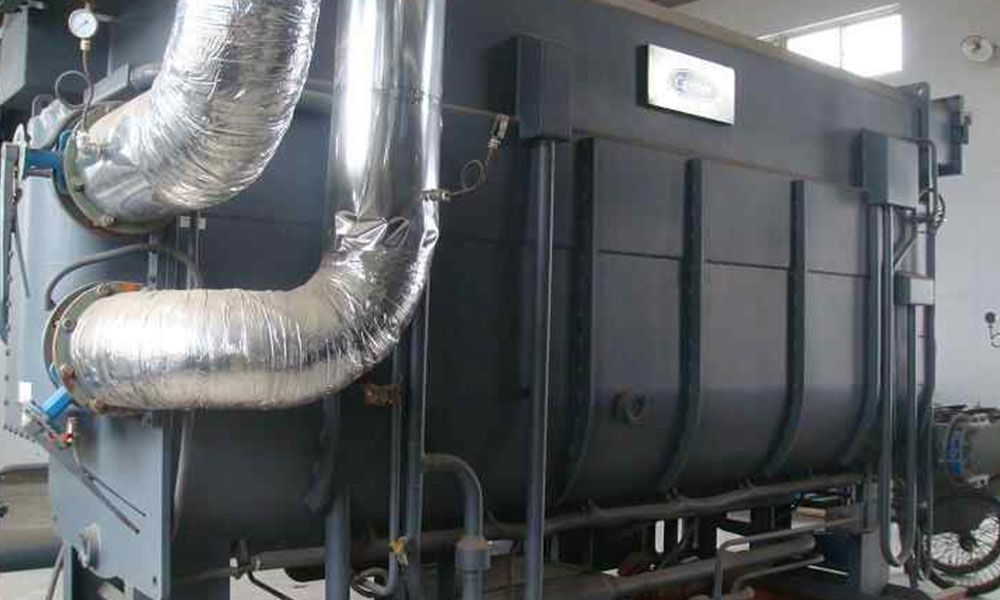Lithium bromide is primarily known for its use in absorption refrigeration systems, which can find applications in various industries, including the food industry. Here’s an overview of how lithium bromide is used in the food industry:
Table of Contents
1. Refrigeration and Cooling
Purpose:
Lithium bromide is used in absorption chillers, which provide cooling without the need for compressors. These chillers use thermal energy (such as steam, hot water, or waste heat) to generate cooling, making them suitable for environments where electrical power is limited or expensive.
Applications:
- Cold Storage: Lithium bromide absorption chillers can be used to maintain cold storage facilities at the optimal temperature for preserving food products.
- Process Cooling: They can cool down production areas, machinery, and product lines during food processing to maintain product quality and safety.
- Dairy Processing: Chilling milk and other dairy products to maintain quality and safety.
- Beverage Cooling: Rapid chilling of beverages before packaging.
2. Energy Efficiency
Purpose:
Lithium bromide absorption chillers are highly energy-efficient, as they can operate on waste heat or renewable energy sources.
Benefits:
- Cost Savings: Reduced energy consumption translates into lower operating costs.
- Environmental Impact: Lower greenhouse gas emissions due to less reliance on electricity.
3. Integration with Renewable Energy Sources
Purpose:
Lithium bromide chillers can be powered by renewable energy sources, such as solar thermal collectors or biomass, making them an environmentally friendly choice.
Advantages:
- Sustainability: Contributes to the facility’s sustainability goals.
- Energy Independence: Reduces dependence on grid electricity.
4. Customizability
Purpose:
Absorption chillers can be customized to meet specific cooling needs and can be integrated with existing infrastructure.
Flexibility:
- Scalability: Can be scaled up or down depending on the cooling demand.
- Modularity: Components can be added or removed as needed.
5. Maintenance and Reliability
Purpose:
Lithium bromide solutions are stable and non-corrosive, leading to longer system lifespans and reduced maintenance costs.
Advantages:
- Durability: Lithium bromide chillers have fewer moving parts than traditional refrigeration systems, reducing wear and tear.
- Low Maintenance: Requires less frequent maintenance and repair.
Case Study: Lithium Bromide Absorption Chiller in a Food Processing Plant
Scenario:
A food processing plant implements a lithium bromide absorption chiller system to cool its production area and cold storage facilities.
Implementation:
- System Design: The absorption chiller is sized to meet the plant’s cooling needs, taking into account the peak cooling load and the available waste heat source.
- Integration: The chiller is integrated with the plant’s existing heating system to utilize waste heat efficiently.
- Monitoring: Advanced controls are installed to monitor and optimize the chiller’s performance.
Benefits:
- Energy Efficiency: The plant reduces its energy consumption by utilizing waste heat.
- Operational Cost Savings: The plant experiences significant savings in operational costs due to the efficient use of energy.
- Environmental Impact: The plant’s carbon footprint is reduced by using renewable energy sources.
Conclusion
Lithium bromide absorption chillers provide a sustainable and efficient cooling solution for the food industry. Their ability to utilize waste heat and renewable energy sources makes them an attractive option for companies looking to improve their sustainability and operational efficiency. As technology continues to advance, we can expect to see more innovative applications of lithium bromide refrigeration in the food sector, leading to even greater benefits for both businesses and the environment.
Contact us today to start optimising your data centre cooling system.









